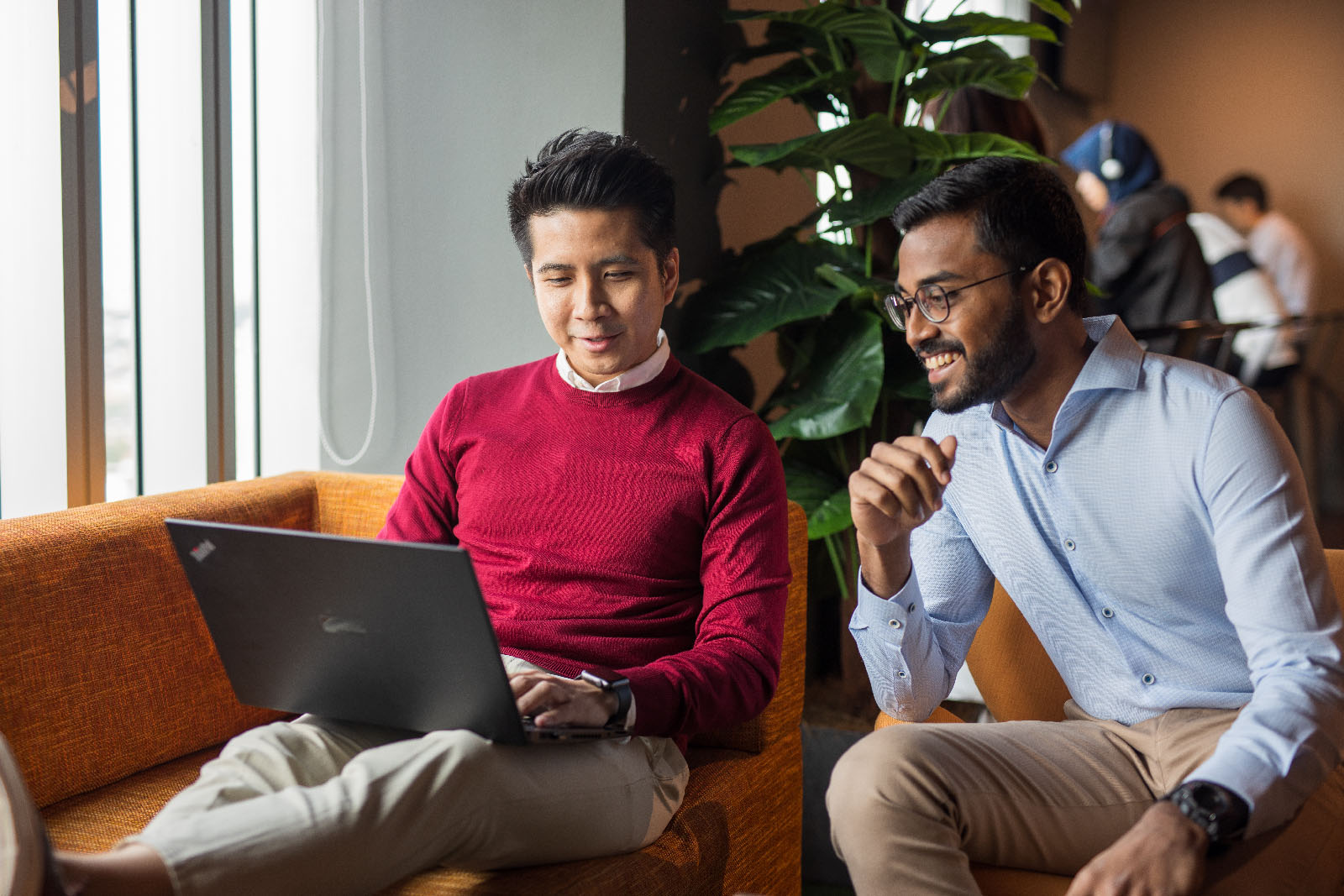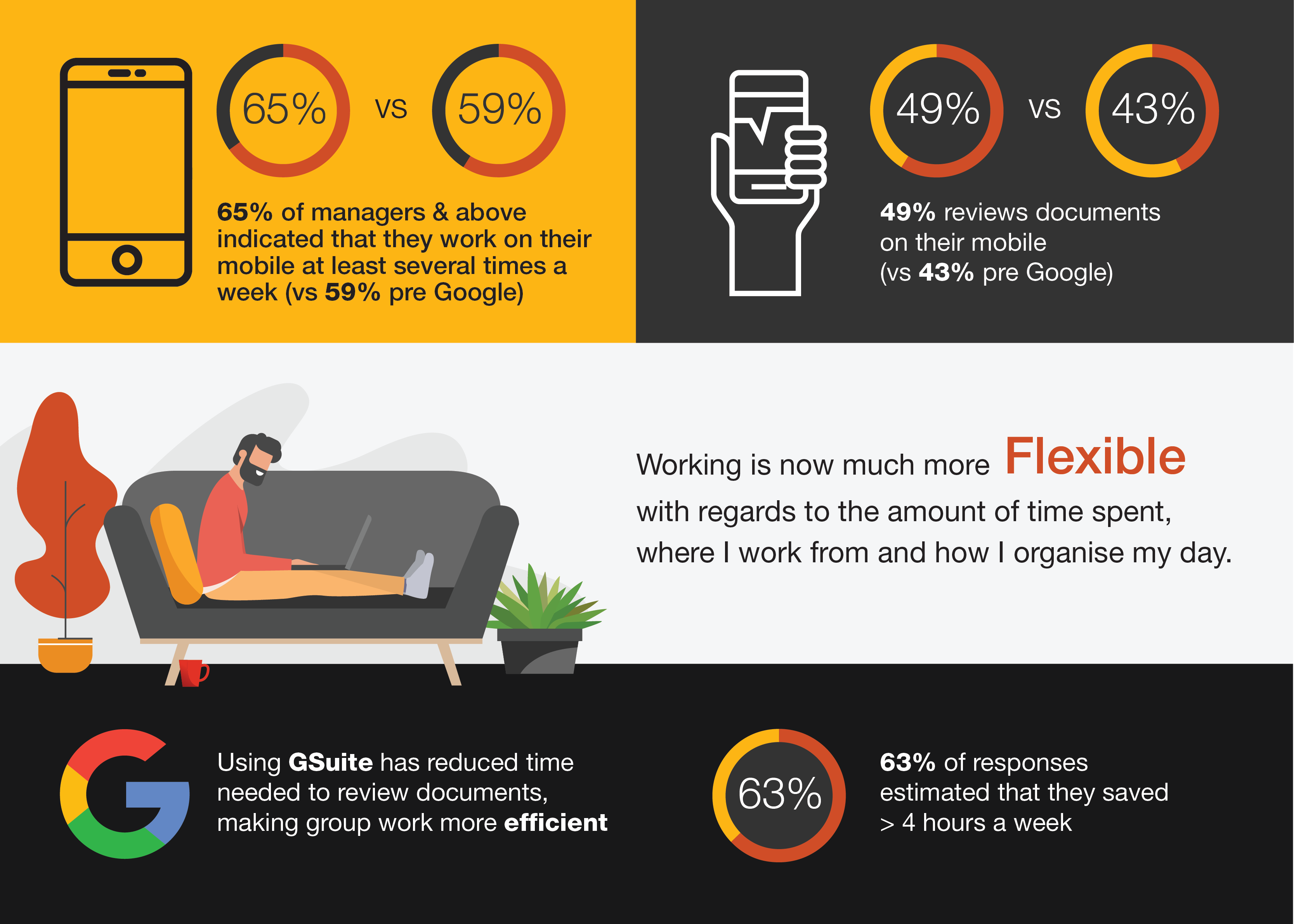

Digitalisation for the firm
Globally, PwC has embarked on a transformation journey to create the capabilities we need to work as ‘One PwC’. The aim is to help our people to be more effective, and to work flexibly with others across the PwC network, and with our clients, locally and globally.
The Business Operations Solutions (BOS) programme aligns and standardises PwC’s common business processes and technologies, across 158 territories in the PwC network. It will deliver a cloud-enabled, global end-to-end process to support how we create and deliver value as a firm, and an integrated technical solution (across Google Suite, Workday, Salesforce and Oracle/SAP platforms), enabling us to change how we engage in the market, support our people, work together and manage our profitability.
The BOS roadmap for FY20 includes:
- Focusing on the core capability of managing risk. New risk and quality processes and technologies will begin rolling out from FY2020 to replace existing localised systems. This should significantly improve our risk management and independence processes as a firm and as individuals.
- Implementing Salesforce to help us engage with our clients and market. Using Salesforce, we can plan ahead and grow stronger, more valuable and trusted relationships with our clients. Salesforce implementation is currently planned for completion by the end of FY2020.
- Planning for the implementation of an Engagement Management and Finance Information solution. This will provide us with better reporting dashboards for decision making and enable us to better manage time spent on client engagements and expenses, on both web and on smart devices.
- Continuous focus on data management activities to facilitate reporting and analytics and the development of insights, and change management activities to reimagine the possible and improve the way we work.
BOS will take a few years and iterative efforts before we achieve an end-to-end integrated platform with common processes, technology and data standards across the PwC network.
Driving greater collaboration through Google Suite (G Suite)
PwC Malaysia went live with G Suite in August 2018. The implementation was successful, and in a survey carried out six months after the launch, we found that more people are working on-the-go through their mobile devices as a result of using G Suite.

One year in (based on August 2019 survey feedback from our people), 63% of responses estimated that they saved more than 4 hours a week using G Suite. The survey also indicated that moving to G Suite has changed the way we work - we are collaborating real-time, and we can work flexibly - anywhere, anytime. We have also observed a reduction in the use of call conferencing facilities which lowered costs by a third since the launch of G Suite.
What’s next for us is to continue encouraging our people to explore and use G Suite tools. We're also loooking to employ better measurements in understanding user behaviour so that we can plan for improved adoption and utilisation.
Workday - people data at our fingertips
We went live with Workday in January 2019. Now, PwC Malaysia is connected to PwC’s global network of firms with one core HR system. This allows us to work towards aligning our data and people processes across the PwC network.
Workday provides anywhere, anytime access to people data on desktop and mobile, empowering our people to manage their own data. It also provides our team leaders direct access to information on their team members, which helps the team leaders engage their coachees and team members better during coaching conversations and team engagements.
With Workday, I understand the team better and this helps with engaging them.
In the coming year, we will continue to work on:
Integrating Workday across all relevant systems for process efficiency. An example is integrating Workday, iPower and TalentLink (resourcing platforms) where annual leave information from Workday is synced up with our people’s timesheet.
Using Workday for people reporting and analytics. With Workday, there are standard reports which allows us to view data easily in table/chart formats in just a few clicks. In the long run, we will be able to view employee trends and use analytics to identify "high risk" employees.
- Streamlining and digitising our people processes to fully utilise Workday through process improvement initiatives (digitising hardcopy forms) and using Workday performance management functions such as continuous feedback and goals, replacing previous Lotus Notes databases.

Enabling flexibility through technology
Our journey towards digitalising the workplace started in FY18 and continues at breakneck speed with the objective of creating a simplified and seamless way of working and access to information.
Four core areas of transformation are:
Seamless connection wherever our people are, enabling them to work flexibly. Whether we are working from Kuala Lumpur, Kuching or Ho Chi Minh City, all devices, including laptop and mobile devices, can connect to the office network seamlessly. This means that our people are able to work from their laptops, cable-free, or from PwC-authorised mobile devices to access enterprise data and applications. All our offices have designated “wired” zones to fully optimise the firm’s new wireless infrastructure.
In 2018, we migrated 824 employees seated in open areas to Cisco PC Jabber, which allows them to receive and make calls through their laptop, from anywhere in the world without compromising on call quality. Other than increased connectivity to allow for work flexibility, we have observed total cost savings of approximately RM1.3 million from purchasing LAN cables, floor switches and Cisco physical phones.- Simpler and faster way to work across borders. Part of being in the PwC network is working together and sharing information across borders; and using services based in other network offices. For example, PwC Hong Kong hosts and maintains Aura (an audit software) and PwC Australia maintains iPower (a time and expense management tool). Previously, we depended on lease line-based network infrastructure to transmit data, which was expensive and had limited bandwidth. We have now progressed to internet based network infrastructure, Viptela, which allows us to enjoy faster internet speed regardless of user geographic location. At the same time, it provides us with capabilities to consume more cloud-based solutions. We have achieved total cost savings of approximately RM2 million in FY2020 from the reduction in network cost, including the streamlining of global support services.
- Harmonising service management platform. Moving away from a legacy system of multiple service request databases, we have started using ServiceNow. It is a simplified global service management tool to align firm services to the business and enable resolution of common issues and assistance more effectively. In June 2019, we launched ServiceNow for IT incident and request management as well as firm services, such as making travel arrangements for business, and organising events.
- Smart conference. In support of the firm's sustainability plans to drive energy efficiency by reducing the need to travel, we have successfully piloted a cutting-edge smart conference solution in our Kuala Lumpur office's business centre through integrated technology: one-touch smart tabs that controls the room environment (audio visual system, lighting, blinds) and wireless sharing of content from laptops and smart devices. From one room in 2019, we plan to replicate this technology to another room in our business centre and two meeting rooms in the PwC Vietnam office.
What’s next for digitalising the workplace
In FY2020, our workplace transformation journey continues with the following key initiatives, to name a few:
Driving mobility and greater collaboration. 48% of our people access their work email through mobile devices. By mid FY2020, we will move to a new global cloud-based device management solution which allows our people to register up to four PwC-authorised mobile devices and laptops. Together with G Suite, these technologies will make flexible working seamless and second nature to our people.
Smart office. A one-stop application to book meeting rooms/facilities/catering, locate meeting rooms and check in, retrieve real time weather forecasts, view the latest digital news and live tweets from PwC Malaysia colleagues and easily access PwC web-based applications.
Digital signage. We plan to use digital screens as a strategic channel to connect the management’s messaging and firm activities to our people. This lets us go green, and boost user experience with built-in interactive capabilities.
In addition to the above, we are also working on securing our environment to build the foundation for future digital collaborations. PwC Malaysia has been acknowledged as a pioneer territory in the network in deploying key security technologies such as GlobalProtect VPN, Platform 10, and the Identity and Access Management platform. We are currently completing the migration to a centrally-managed, globally-administered Active Directory (AD) environment.
Positive insights from Global People Survey
75%
70%
Using technology to deliver value for clients - PwC’s tech-enabled audit
Emerging technologies have revolutionised many aspects of business, and audit is no different. At PwC, we are tech-enabling the audit process, matching emerging technology with the skills of our people to dramatically shift how we work. At the same time, we’re improving audit quality and enhancing audit insight - two things our clients tell us matter most. We’re re-engineering and bringing innovation to audit with Aura Platinum, Connect v3 and a document generator tool.
Aura
Aura is our global enterprise resource planning (ERP) system and is used in every PwC audit. Aura ensures our teams take a consistent, focused and efficient approach to address audit risks. This means: a better understanding of our client’s business due to end-to-end visibility of the audit process; a greater focus on the things that matter thanks to a systematic risk-based approach; and real-time monitoring of engagement quality and progress that is available securely on mobile devices - anytime, anywhere.
Aura Platinum is the next generation audit documentation software, building on the current Aura. This tool transforms the way we approach the audit and evidencing the work done. It allows teams to work more collaboratively online; being able to document on-the-go; and has project management features and seamless integration with other Assurance tools like Connect v3. Aura Platinum was launched in August 2019.
Connect v3
Connect v3, our global coordination tool, provides fast, efficient and secure information sharing at every stage of the audit. It streamlines, standardises and automates real-time communication between client teams and ours, across different time zones and no matter where we are working from. This means:
Better information exchange and document management using a secure, web-based tool. We will be moving away from emails and will be able to see workflow and deliverables for all parties instantly.
Process efficiencies through consolidation and automation of notifications, staying on track through a dashboard and being aware of potential delays.
Safe and secure communication for client teams and ours.
Significantly reduce document management efforts, as both client and our team can upload and view documents.
Fast and efficient issue resolution due to real-time tracking.
Connect V3 was launched in August 2019, together with Aura Platinum.
Document generator tool
We have implemented a new platform to help produce accurately tailored client documents and reports (e.g. audit opinions) in March 2019. This allows us to generate high quality audit deliverables in a more efficient way, reducing time spent writing reports, and time reviewing and editing errors. We estimate that using this tool, each audit team would save time, allowing teams to focus on areas that matter.
RM5,000
Approximate time cost saved on each engagement |
Contact us

















